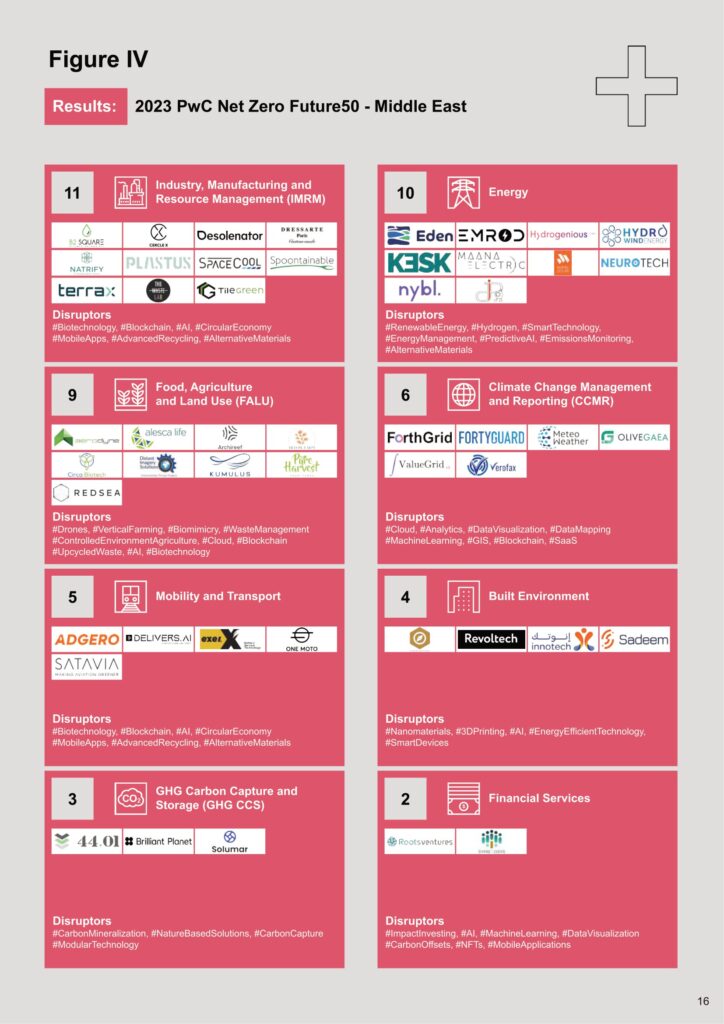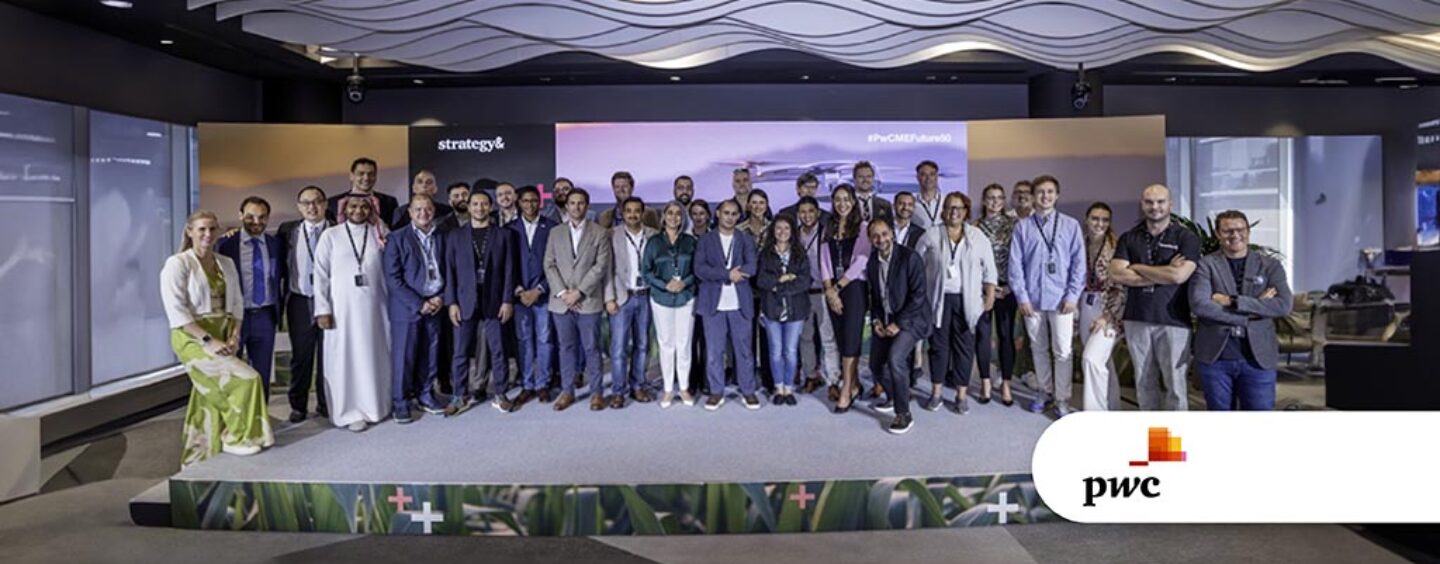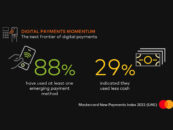PwC Middle East has launched its first Net Zero Future50 report, revealing 50 pioneering start-ups in the Middle East driving innovation focused on reducing greenhouse gas emissions and addressing the impacts of global warming across key economic sectors in the region.
The report highlights their technologies and achievements in climate management and carbon emissions reporting, in addition to opportunities and challenges in growing and scaling their businesses. Using PwC networks and tech partner expertise, they identified 500 climate and sustainability-focused start-ups operating in the region – with over 200 coming forward in response to their public call for nominations at COP27 in Sharm-El-Sheikh, Egypt, last year. A rigorous selection process, including in-depth interviews and evaluations, led to the Net Zero Future50, chosen by PwC and Strategy& judges specialising in ESG, digital innovation, and energy transition.

Breaking away from global trends in tech and innovation, over half of the featured Future50 companies boast female founders or mixed-gender leadership teams. A remarkable 25% have a female founder, while an additional 32% have a diverse team of both female and male founders, highlighting that the majority of startups feature women as leaders.
Moreover, a large proportion of these founders are young, with nearly half aged between 30 and 39, highlighting a fresh perspective and dynamic approach in the sector.
The report also found that despite the region’s commendable increase in investment into global climate tech funding – which nearly tripled to US$5 billion in 2023 from US$1.8 billion in 2022 – a concerning funding gap persists for local and regional climate tech entrepreneurs. Funding for these entrepreneurs saw a stark decline to US$152 million in 2023, down from nearly US$1 billion in 2022. Nevertheless, entrepreneurial spirit remains resilient in addressing regional climate issues through innovation.
Positively, the majority of the Future50 innovators are operating within sectors responsible for the majority of greenhouse gas emissions in the region, signalling investment is going where it’s needed the most. Specifically, Industry, Manufacturing and Resource Management make up 22% of the total list, while Energy makes up 20%; when combined both these sectors account for 75% of regional GHG direct and indirect emissions. The Food, Agriculture, and Land Use (FALU) sector is the third most represented comprising 18% of the list – despite only contributing 2% of GHG emissions in the region. This reflects the focus on climate and sustainability challenges related directly to food security, in a region that imports more than 80% of its food and is vulnerable to supply chain disruption.
Despite this, significant barriers continue to shape the journey for climate tech innovators.
The top 50 pioneering Climate Tech Startups in the Middle East are:









No Comments so far
Jump into a conversationNo Comments Yet!
You can be the one to start a conversation.